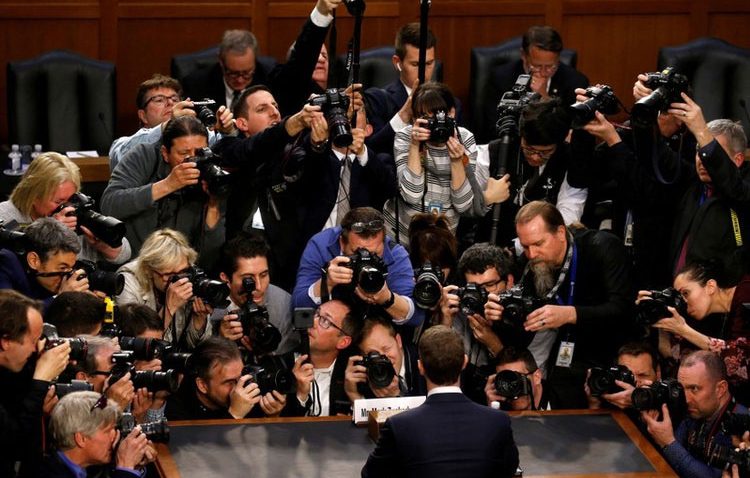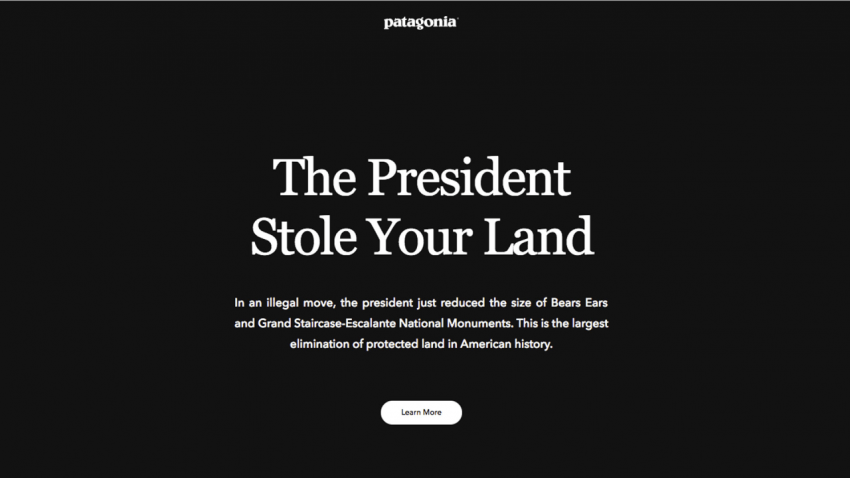One needn’t be prescient to have anticipated the extraordinary spectacle of Facebook CEO Mark Zuckerberg’s testimony before lawmakers on Capitol Hill this week. Not only have leaders of both parties condemned fake news and Russia’s meddling in U.S. elections—manipulations enabled in no small measure by Facebook—the Cambridge Analytica breach reveals that social media is a new frontier that is loosely regulated.
Equally predictable was the steady cadence of tough questions directed at Mr. Zuckerberg by Democrats and Republicans alike. After all, the issues at hand are inexorably serious, as the Facebook CEO himself has repeatedly acknowledged. Given the inevitably disjointed and often cynical nature of Congressional hearings, Mr. Zuckerberg’s single best opportunity to manage Facebook’s reputation, while blunting the threat of legislation that could undermine the company’s business model, was his opening statement.
Mr. Zuckerberg used the opportunity to acknowledge Facebook’s errors, take personal responsibility for the missteps and pledge corrective action by the company. His was a smart, time-honored strategy that he discharged reasonably well. Not leaving well enough alone, however, Mr. Zuckerberg began his opening statement by proclaiming that Facebook is an “idealistic and optimistic company” that has helped give rise to the #MeToo movement and the March For Our Lives; he ended it by reminding lawmakers that his “top priority is our social mission” and to be “a positive force in the world.”
We understand the logic of Mr. Zuckerberg’s claim that Facebook “brings the world closer together,” despite numerous research studies concluding that social media fosters entrenched ideological division: The more a company is perceived as contributing to society’s greater good, the greater its regulatory license to operate. Still, nearly two minutes of the Facebook CEO’s five-minute opening statement—40 percent in all—dwelled on how the company was focused on “all of the good connecting people can do.”
Compare Mr. Zuckerberg’s opening statement with that of Warren Buffet, which was delivered in September 1991 before a House subcommittee investigating the Salomon Brothers’ bond trading scandal. Mr. Buffett had recently become chairman of the firm, which was among Wall Street’s largest at the time, when it nearly became insolvent as a result of various trading abuses. Like Facebook, the stakes were high for Salomon Brothers: The firm’s actions affected the integrity of nation’s financial system, including the sale of treasury bonds, not to mention the livelihoods of more than 8,000 employees.
Mr. Buffet was short, if not sweet, in his opening statement. Speaking for little more than two minutes, he began by acknowledging: “The nation has a right to expect its rules and laws to be obeyed. And at Salomon, certain of these were broken.” It’s not simply that Mr. Buffett was plainspoken, he cut to the chase in addressing the firm’s misdeeds—and what needed to be done about them—ignoring the inevitable temptation to manage perceptions of the firm. As a result, lawmakers and other stakeholders surely saw Mr. Buffett as a straight shooter.
In turn, the Salomon Brothers Chairman spoke in stark terms—and with palpable anger in his voice—about how “…the past actions of Salomon are presently causing our 8,000 employees and their families to bear a stain.” In so doing, he conveyed that the firm’s failure to obey the law had painful social implications for those who worked for Salomon Brothers, including himself. Implicitly, but no less powerfully, Mr. Buffett signaled that the firm was largely comprised of people whose core values routinely impelled them to do the right thing.
Correspondingly, he made a point of inviting federal authorities to wield “the power of subpoena, the ability to immunize witnesses, and the power to prosecute for perjury.” One might argue that Mr. Buffett was demonstrating political guile in his remarks. Perhaps. Yet, when is the last time a chairman or CEO explicitly welcomed a governmental investigation into his or her business—before Congress, no less, and with overflowing media hoard in tow? Not this week.
Mr. Buffett ended his opening statement with a no-holds-barred ultimatum to employees that invariably resonated well beyond the firm: “After they first obey all rules, I then want employees to ask themselves whether they are willing to have any contemplated act appear the next day on the front page of their local paper, to be read by their spouses, children, and friends, with the reporting done by an informed and critical reporter. If they follow this test, they need not fear my other message to them: Lose money for the firm, and I will be understanding; lose a shred of reputation for the firm, and I will be ruthless.”
Unadorned by the airbrushed language typical of today’s mea culpa, Mr. Buffett was efficient, sobering and, above all, practical. He acknowledged wrongdoing and pledged remedial action, but he also invited increased regulatory scrutiny of the firm’s operations. All told, more than half of his statement was focused on solving a problem of the firm’s creation. Moreover, Mr. Buffett called upon Salomon Brothers’ employees to hold themselves accountable not simply to the laws of the land, but societal norms as well. And for those who failed to do one or both, he left no doubt that they would meet with swift and severe consequences.
The purpose of our analysis isn’t to be critical of Mr. Zuckerberg. (Again, he performed reasonably well in a challenging climate; in fact, while he was testifying on Tuesday, Facebook’s share price finished up 4.5 percent.) Instead, we want to use Mr. Zuckerberg’s appearance before Congress to draw attention to Mr. Buffett’s markedly different approach in an analogous situation. We regard the latter’s opening statement as the standard by which all others should be measured.
At the core of Mr. Buffett’s communications strategy was his evident awareness that there is seldom, if ever, a quick fix in regaining the trust of company’s stakeholders—and the greater the breach of trust, the longer the fix. No less instructively, he understood that the first essential step in regaining the trust of stakeholders is to recognize that positive headlines, while valuable, are no substitute for substantive, positive action by a company and its leaders. ![]()

